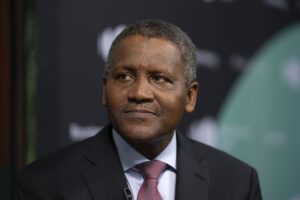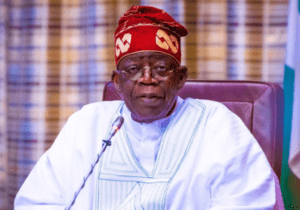

President Tinubu, executive clemency and the other side of empathetic leadership
By Stanley Nkwocha
President Bola Tinubu’s intervention in the case of pardoned suspects arrested during the August 1, 2024 protests exemplifies empathetic and compassionate leadership. Invoking his constitutional power of executive clemency, commonly known in our clime as presidential pardon, the president ordered their immediate release.
His act of mercy extended beyond ordering their release; the president hosted them at the presidential villa. Vice President Kashim Shettima, who received the pardoned suspects on Tuesday on President Tinubu’s instructions, asked them not to sin again and to be responsible citizens.
The Vice President’s message, which reverberated through the magnificent edifice of the State House Auditorium, demonstrated the president’s commitment to addressing concerns surrounding the suspects’ arrest and ensuring their welfare. Senator Shettima emphasised that the release of those arrested during the August 1 protests was based on humanitarian grounds. He told them that despite overwhelming evidence against them, President Tinubu chose to give them another chance, urging them to become responsible citizens contributing positively to Nigeria’s growth.
As the Vice President acknowledged, the devastating impact of the protests resulted in over N300 billion in losses, primarily affecting private property through looting and business disruptions. He cautioned the suspects against involvement in violence and destruction, instead encouraging them to seize the opportunity to reform and contribute to societal growth. VP Shettima tasked state governors with ensuring the rehabilitation of the pardoned suspects and facilitating their reintegration into their respective communities.
However, some legal experts have contended that discharging and acquitting suspects charged with treason through a mere presidential pardon, without considering the weight of the offence, would send the wrong signal to the public.
The president’s prerogative of mercy, these lawyers argued, could be interpreted to mean that in Nigeria, one can commit a very grievous criminal offence such as treason and get away with it, even receiving a pat on the back.
But it is clear from VP Shettima’s address at the reception for the released suspects that the president’s move is not only a positive step toward promoting justice but also reflects an unquenchable desire to protect citizens’ rights, particularly those of vulnerable populations. It aims to address the root causes of social unrest and promote national cohesion.
Shettima’s address also highlighted the Tinubu administration’s efforts to stabilise the economy, improve public welfare, and prevent violence. The president has consistently emphasised the importance of dialogue, urging protesters to suspend further action and engage in constructive conversation.
As part of the government’s comprehensive reform agenda, President Tinubu’s administration has initiated several key programmes to address Nigeria’s economic and social challenges. The implementation of Tax and Fiscal Reforms has streamlined revenue collection while ensuring equitable distribution of resources. The strategic removal of petrol subsidy, though initially challenging, has freed up substantial funds for critical development projects.
The administration has also launched social welfare initiatives, including an innovative Student Loan Programme to enhance access to higher education and a Consumer Credit Scheme to boost purchasing power and stimulate economic activity. The unification of the foreign exchange market represents a bold step toward creating a more transparent and efficient monetary system.
In the agricultural sector, significant investments in commercial agriculture aim to boost food security and create employment opportunities. The Expanded National MSME Clinics provide crucial support to small businesses, fostering entrepreneurship and economic growth across the nation.
Healthcare infrastructure has received particular attention, with major upgrades going on in key tertiary hospitals across all six geo-political zones. This initiative aims to reduce medical tourism and improve access to quality healthcare services nationwide.
The administration has also embarked on ambitious infrastructure projects, including the Lagos-Calabar and Sokoto-Badagry superhighways. These transformative projects will enhance connectivity, facilitate trade, and stimulate economic growth across different regions of the country.
These initiatives, among many others, demonstrate the government’s commitment to implementing comprehensive reforms that address both immediate challenges and long-term development goals, while promoting inclusive growth and national prosperity.
For those whipping up political, ethnic, and religious sentiments against the government, let it be known that no nation thrives when politicians and statesmen politicise every issue. Unfortunately, this trend threatens Nigeria’s progress. Unequivocally, hoisting Russian flags and advocating a military takeover constitutes a treasonable offence.
The issue raises concerns about the country’s future and the need for responsible public commentary. The politicisation of sensitive issues undermines national unity and security. Statesmen should prioritise the nation’s well-being over partisan interests.
Nigeria requires constructive dialogue, addressing grievances, and fostering patriotism. Politicising sensitive matters only exacerbates division and hinders progress. Leaders must prioritise national interests, ensure accountability, and promote a unified Nigeria.
Effective governance demands statesmanship, not opportunism. Nigeria’s future depends on leaders who prioritise the nation’s well-being over political expediency. President Tinubu’s decision to release the suspects arrested during the August 1 protests was an exercise of the prerogative of mercy. This power, granted by Section 175 of the Nigerian Constitution, allows the president to grant pardons, respite, or substitute less severe punishments for individuals convicted of offences.
In this case, Tinubu’s executive clemency demonstrates his commitment to mercy and justice, particularly for vulnerable populations. President Tinubu’s decision serves as an example of responsible leadership, balancing justice with compassion.
The protests, which began as a call for better governance, took a worrying turn when the suspected protesters were seen waving Russian flags and advocating military intervention. This raises questions about who’s really behind these actions and what their true motives are. Are these young people truly aware of the implications of their actions, or are they being manipulated by external forces?
Some experts suggest that opposition and civil society elements are exploiting these situations to gain power, rather than working toward the betterment of the nation. This approach is not only harmful but also undermines the democratic process. Attempting to acquire political power through the backdoor is, indeed, shameful and undermines the legitimacy of the protests’ claims.
The focus should be on addressing the root causes of social unrest rather than politicising the situation. Nigeria is not alone in this. Genuine reforms take time. President Tinubu’s administration has initiated policies aimed at improving the economy and reducing corruption.
Nigerians must prioritise national interests over individual or party agendas. By working together, we can address the challenges facing our nation and build a better future for all.
Nkwocha is Senior Special Assistant to the President on Media & Communications (Office of The Vice President)




